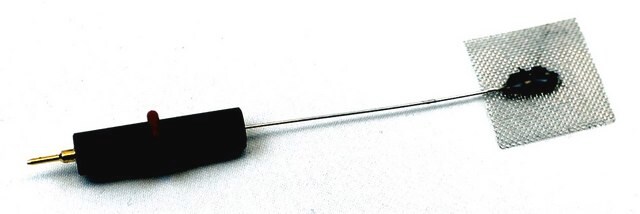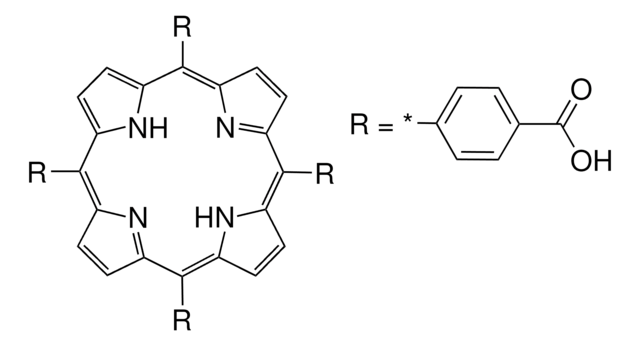298093
Platinum
gauze, 100 mesh, 99.9% trace metals basis
About This Item
Produits recommandés
Niveau de qualité
Pureté
99.9% trace metals basis
Forme
gauze
Résistivité
10.6 μΩ-cm, 20°C
Taille des particules
100 mesh
Point d'ébullition
3827 °C (lit.)
Pf
1772 °C (lit.)
Densité
21.45 g/cm3 (lit.)
Chaîne SMILES
[Pt]
InChI
1S/Pt
Clé InChI
BASFCYQUMIYNBI-UHFFFAOYSA-N
Catégories apparentées
Description générale
Application
- as a microelectrode-indicator electrode in voltammetry
- to study chronopotentiometry of hydrogen peroxide with a platinum wire electrode or
- in gas detection instruments.
- as electrode in spectrochemical cell to measure the electrochemical properties of aqueous solutions of epinephrine, dopamine, and norepinephrine.
Quantité
Code de la classe de stockage
13 - Non Combustible Solids
Classe de danger pour l'eau (WGK)
nwg
Point d'éclair (°F)
Not applicable
Point d'éclair (°C)
Not applicable
Faites votre choix parmi les versions les plus récentes :
Déjà en possession de ce produit ?
Retrouvez la documentation relative aux produits que vous avez récemment achetés dans la Bibliothèque de documents.
Les clients ont également consulté
Articles
Noble-metal nanostructures are widely used in a variety of applications ranging from catalysis to electronics, surface plasmon resonance (SPR), surface-enhanced Raman scattering (SERS), and biomedical research.
Notre équipe de scientifiques dispose d'une expérience dans tous les secteurs de la recherche, notamment en sciences de la vie, science des matériaux, synthèse chimique, chromatographie, analyse et dans de nombreux autres domaines..
Contacter notre Service technique



